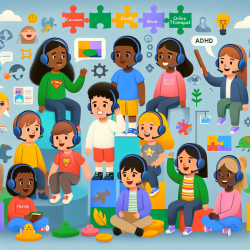In the recent study Envisioning the future for families running away from war: Challenges and resources of Ukrainian parents in Italy, researchers Paoletti et al. (2023) investigated the adaptation challenges and resources of Ukrainian parents who fled to Italy due to the ongoing conflict. The study also evaluated the impact of neuropsychopedagogical training on these parents' well-being and indirectly on their children. This blog post will discuss how practitioners can implement the findings from this study to improve their skills and create better outcomes for children.
Understanding the Challenges and Resources
The study revealed several key challenges faced by Ukrainian parents:
- Sleep-related difficulties (80%)
- Negative mood (70%)
- Lack of attention and concentration difficulties (60%)
- Specific fears (60%)
- Irritability (63%)
Similarly, their children experienced problems related to attention (60%), mood (60%), irritability (60%), and specific fears (40%). The main adaptation difficulties included language and bureaucratic barriers, prolonged permanence in Italy, job loss, and family issues.
On the other hand, the study identified key personal resources utilized by these parents:
- Self-efficacy (26%)
- Perceived social support (66%)
- Spirituality (6%)
- Common humanity (13%)
- Self-esteem (13%)
Implementing Neuropsychopedagogical Training
The study assessed the impact of the "10 Keys to Resilience" training, which significantly improved parents' well-being. Post-training, parents reported:
- Improved sleep (80%)
- Increased confidence (86%)
- More frequent positive thoughts (86%)
The training's positive impact was categorized into three areas:
- Behavioral: Encouraging small, actionable steps and engaging children in practical actions.
- Emotional-relational: Fostering gratitude and building social networks.
- Cognitive-narrative: Utilizing cognitive strategies like problem-solving and positive reappraisal.
Recommendations for Practitioners
Based on these findings, practitioners can improve their skills by:
1. Fostering Resilience
Implement training programs similar to the "10 Keys to Resilience" to help parents and children build coping strategies. Encourage small, manageable actions to help families regain a sense of control and stability.
2. Enhancing Social Support
Facilitate the development of social networks for refugee families. Provide platforms for parents to share experiences and support each other, which can significantly reduce stress and improve mental health.
3. Promoting Positive Cognitive Strategies
Teach parents and children cognitive strategies like positive reappraisal and problem-solving. These strategies can help them cope with stress and view challenges as opportunities for growth.
4. Encouraging Emotional Expression
Encourage parents to express gratitude and other positive emotions. This can enhance their well-being and create a more supportive family environment.
5. Integrating Cultural Sensitivity
Ensure that interventions are culturally sensitive and include cultural mediators when necessary. This can help bridge language and cultural gaps, making the interventions more effective.
To read the original research paper, please follow this link: Envisioning the future for families running away from war: Challenges and resources of Ukrainian parents in Italy.










